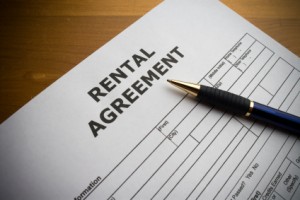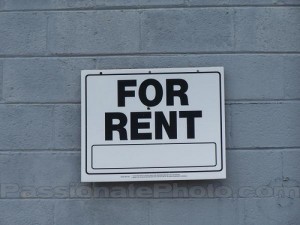Posted by Teresa on July 27, 2012 under Landlord Tips, Tenant Credit Checks | 
 With a still-slow economy and high unemployment rate, the face of today’s renter is changing. No longer just young people starting out in life, more middle-aged and older folks are now renting homes than ever before. Some are choosing renting over homeownership. Others are former homeowners who have no choice but to rent.
With a still-slow economy and high unemployment rate, the face of today’s renter is changing. No longer just young people starting out in life, more middle-aged and older folks are now renting homes than ever before. Some are choosing renting over homeownership. Others are former homeowners who have no choice but to rent.
Here are some tips for a successful relationship with today’s tenants:
- Be patient with potential tenants. Some may have been forced to sell a dream home, or have lost their home to foreclosure. They may have never rented a home before. Clearly explain your application process, review the lease carefully, and be sure to point out any rules and regulations you’ll want them to follow.
- Be sure to run tenant credit checks on every applicant. Many potential renters are facing bad credit scores, and could be high risks. However, higher deposits and co-signers can help ease the risk of leasing to them, as long as they otherwise qualify per your requirements.
- Ask prospective tenants for pay stubs from their current job, a reference from a landlord or work supervisor, and other proof that they are stable and employed.
- Consider giving a little leeway on painting or planting flowers. Former homeowners often take great pride in their living spaces, and are accustomed to maintaining and upgrading them. Why not allow them to paint (with approval on the colors, of course) or spruce up the exterior of your property?
Displaced homeowners may turn out to be great tenants. They may be ready to stay in your rental property long term, since buying another home might be a long way off. Work with them, and you could have a mutually beneficial, long-term relationship.
Posted by Teresa on June 1, 2012 under Lease and Rental Agreements, Legal | 
 More rental property owners are prohibiting smoking in their buildings. The reasons to do so are many: avoiding the smell and stains that permeate your property, lowering the risk of fire, and protecting the health of children and non-smoking tenants. Plus, a number of municipalities are passing no-smoking laws for multi-family or public housing buildings.
More rental property owners are prohibiting smoking in their buildings. The reasons to do so are many: avoiding the smell and stains that permeate your property, lowering the risk of fire, and protecting the health of children and non-smoking tenants. Plus, a number of municipalities are passing no-smoking laws for multi-family or public housing buildings.
However, smoking is not illegal. While you may have decided to prohibit smoking inside your rental units, can you deny the lease applications of smokers? And what can you do if you find out after the fact that someone was smoking in your smoke-free property?
First of all, smokers are not a protected class. The Fair Housing Act does prohibit housing discrimination against people based on religion, sex, disability, race, color, national origin, and family status. But it doesn’t deny landlords the right to choose tenants based on their smoking status.
To prevent smokers from taking advantage of lease loopholes, such as smoking outside their units, you might consider strengthening your lease language to prohibit smoking anywhere on the property. Since you are the owner and it is private property, you have the right to prohibit smoking wherever you’d like.
Being a hands-on landlord can help you avoid the problem of hidden smokers. When walking through your property, you may notice cigarette butts, or smell smoke. Asking tenants if they’ve noticed any smoking will indicate that you care about their health and enforcing the terms of your lease. If you do find out someone has broken the lease by smoking, you could have grounds for eviction (check with a landlord/tenant attorney for advice).
While frequent inspections can flush out smokers, many landlords don’t see the inside of their units until a tenant has moved out. If you discover signs of smoking, such as odor, cigarette burns or a layer of tar on walls and ceilings, you are likely entitled to withhold clean up costs from the tenant’s security deposit. Track all expenses (cleaners, primer, paint, new flooring) and keep receipts. Of course, it’s best to conduct a move-out inspection with the tenant so he or she can acknowledge all damages.
Protect your rental property and assets through tenant background checks. Proper tenant screening will ensure you are leasing to the best possible tenants.
Posted by Teresa on May 30, 2012 under Lease and Rental Agreements | 
 The still-slow economy means vacationers are looking for ways to save money, and everyone else is looking for ways to make it. Put them together, and you have strong growth in vacation rentals—and not just beach houses. Ordinary rental homes and apartments are desirable by travelers and tourists alike who prefer to avoid high rates and fees charged by hotels for everything from parking to WiFi.
The still-slow economy means vacationers are looking for ways to save money, and everyone else is looking for ways to make it. Put them together, and you have strong growth in vacation rentals—and not just beach houses. Ordinary rental homes and apartments are desirable by travelers and tourists alike who prefer to avoid high rates and fees charged by hotels for everything from parking to WiFi.
Some “hosts” vacate their apartments and turn the entire unit over to their “guests,” while others rent just a couch or spare room—and take on temporary roommates. Most have not considered reviewing their leases to make sure this situation is even allowed. And it probably isn’t, considering that “no subletting without landlord approval” is a common clause in most rental agreements and leases.
As summer vacation season kicks off, what can landlords do to prevent unknown, unscreened strangers from staying in their properties without their consent?
- Send out a friendly reminder to all tenants that subletting without your permission is not allowed—whether it’s temporarily turning over the entire rental to a third party, or renting out a part of it.
- Explain your concern for the safety of all tenants, who would be at risk if your tenant screening procedures were not followed for everyone residing on your property—even temporarily.
- Notify tenants that anyone violating the policy is subject to eviction.
Your rental property is yours alone to profit from. You have the responsibility for maintenance, repairs, paying taxes and keeping tenants safe. Your tenants do not have the right to rent out your property and profit from your investment, unless you condone it. Make sure that your leases include a no-subletting clause—and that you uniformly enforce it.
Posted by Teresa on October 7, 2011 under Landlord Paperwork and Forms, Lease and Rental Agreements | 
 When leases are about to expire, landlords need to decide whether or not to renew and re-sign with a tenant, or notify them there will be no lease renewal. It’s important to know the terms of your lease agreement, obviously, but most require a 60- or 30-day notice from either party if a lease will not be renewed. Remember, it’s up to the landlord whether or not to offer a new lease and keep a tenant. Of course, tenants who wish to move have the option to end the relationship at the end of the lease, but if the landlord decides a tenant is out, there’s not much a tenant can do.
When leases are about to expire, landlords need to decide whether or not to renew and re-sign with a tenant, or notify them there will be no lease renewal. It’s important to know the terms of your lease agreement, obviously, but most require a 60- or 30-day notice from either party if a lease will not be renewed. Remember, it’s up to the landlord whether or not to offer a new lease and keep a tenant. Of course, tenants who wish to move have the option to end the relationship at the end of the lease, but if the landlord decides a tenant is out, there’s not much a tenant can do.
Landlords need to know in advance if a tenant plans to stay or move. It’s not a bad idea to send the tenant a notice, ask if they’re staying or leaving, and have them check a box: I’m interested in renewing; or I’m moving out. Sending a notice ahead of time is also a great way to remind tenants that any security deposit paid is just that—and that the last month’s rent will be due as usual, with the security deposit covered separately.
If the tenant is paying rent on time and abiding by the terms of his or her lease, it’s to the landlord’s advantage to keep the tenant in place, avoiding the expenses and time associated with finding a replacement. Some landlords who want to keep their tenants send a friendly letter notifying them that the lease is up for renewal, and offering a discount on the standard annual rent increase because they are “preferred tenants.” Others put the new rent at the standard rate and offer a $50 gift card, new light fixtures, or some other perk for renewing.
The strong rental market means landlords can be a bit choosier. So if a lease renewal date is coming up and a tenant no longer fits your requirements, you simply need to notify him or her that you will not be renewing the lease. Give at least 30 days’ notice, or more if you lease or local laws require it.
3 Reasons to Let a Bad Tenant Go:
- Late rent: Even if a tenant pays the rent every month, if they pay late every month, it’s a hassle. Get someone in who will pay every month, on time.
- Breaking terms of lease: Every item in the lease was agreed to by your tenant when they signed it. If you have a tenant who is smoking in a non-smoking unit, or piling garbage around the dumpster instead of in it, or taking up three parking spots instead of one, you may decide that you no longer wish to put up with the headaches a tenant like this can cause.
- High maintenance: Certainly, legitimate complaints about repairs and maintenance are your responsibility as a landlord. But if you have a tenant who complains about a light bulb burning out, or the lack of air conditioning in a unit that never had it, or any number of other insignificant non-issues, you have the right to not renew the lease.
Protect your rental property and assets through tenant background checks. Proper tenant screening will ensure you are leasing to the best possible tenants.
Posted by Teresa on September 17, 2011 under Lease and Rental Agreements | 

Dealing with tenants who want to break a lease early doesn’t have to be unpleasant. Experienced landlords often offer tenants a buy-out agreement as a way to compensate them for the trouble of a breaking the lease.
You can set the conditions of the buyout according to your needs. For example, you can release your tenant from the lease and any remaining rent obligations, in exchange for a fee. While the fee does not affect the tenant’s obligations for any property damage (any security deposit paid by the tenant is a separate matter), it can compensate you for your time and trouble in finding a replacement tenant, plus your advertising expenses and possible loss of rental income while undergoing the process.
Be sure that the terms and conditions of the buy-out agreement are clearly spelled out in a document that will be signed by you and all tenants listed on the original lease agreement. Include the dollar amount of the fee, which might equal one, two or three months’ rent, along with the date the property will be vacated, and other details concerning property inspection, key return, security deposit, and forwarding address information. It’s a good idea to have all of your lease and agreement documents reviewed by a landlord/tenant attorney.
The amount of the fee should cover the loss of rent for the time you expect it will take to re-lease the property, advertising expenses and any other costs related to the tenant terminating the lease.
Legal disclaimer:
The contents of this article are intended for general information purposes only, and should not be relied upon as a substitute for obtaining legal advice applicable to your situation.
Posted by Teresa on September 8, 2011 under Landlord and Tenant FAQs | 
 Every now and then, landlords are faced with unusual requests from their tenants. One we’ve heard of recently involved a tenant asking for a discount on rent in exchange for paying a full years’ worth up front.
Every now and then, landlords are faced with unusual requests from their tenants. One we’ve heard of recently involved a tenant asking for a discount on rent in exchange for paying a full years’ worth up front.
The rent is $650 per month, and the tenant offered a full payment of $7,200 or $600 per month. The landlord wanted to know if it was a good idea to accept the tenant’s money and move on, knowing she didn’t have to worry about late rent for a full 12 months.
While it might seem like a no-brainer to eliminate one concern that comes with being a landlord, this might not be such a smart way to go. Here’s why:
- Even if the landlord put the entire amount into the bank, interest rates are hardly attractive right now. Other investments might garner more return—or not. Is the risk worth it? There are few incentives for the landlord to give up $600 in rent.
- Offering a tenant a discount doesn’t make sense when you consider the lease stipulates rent is $7,800 per year, to be paid monthly at the rate of $650 per month. Monthly payments are all a landlord needs to do to make rent easier to pay.
- Entering into negotiations such as this with tenants could lead to others seeking discounts for paying two, three or six months in advance. This could lead to a bookkeeping nightmare for the landlord. And anyone who thinks tenants won’t find out about such an arrangement should think again. Tenants talk!
- If the tenant breaks the lease, or the landlord needs to evict, holding the tenant’s money for future rent could complicate matters.
In the end, a $50 discount is far more generous than any bank would give the landlord—so why give it to the tenant?
Posted by Teresa on August 5, 2011 under Lease and Rental Agreements | 
 When a tenant moves out, but leaves personal property behind, what is the best way for a landlord to handle it? As with most tenant issues, the best way to take care of a problem is to prevent it in the first place. And barring that, it’s best to have it covered in your lease so there are no questions about how to proceed, and the tenant has already agreed to the process.
When a tenant moves out, but leaves personal property behind, what is the best way for a landlord to handle it? As with most tenant issues, the best way to take care of a problem is to prevent it in the first place. And barring that, it’s best to have it covered in your lease so there are no questions about how to proceed, and the tenant has already agreed to the process.
Tenants often leave furniture, clothes, books or appliances behind when they move. Some no longer want the items, and figure the landlord will just clean up after them. Others want the landlord to store their property until they are able to retrieve it. Either way, it can be troublesome for the landlord.
When a Tenant Abandons Property
First, check your local laws on abandoned property. You may be obligated to hold a previous tenant’s property for a period of time, which could be five days or 30 days, before you may dispose of it. Some jurisdictions require landlords to send notices via registered mail as well. Failing to follow your local laws could land you in legal trouble, so if you’re in doubt, obtain legal counsel.
Preventing the Left-Behind Property
The best scenario is when landlord and tenant do a walk-through of the rental property on move-out day. A move-out inspection is conducted and the tenant initials each item, recognizing any damage or possible deductions from the security deposit. However, that’s not always possible. If you or your property manager are not present when the tenant leaves (and many do so under the cover of darkness—especially if they’re leaving behind a mess), you could be in for a big surprise when you come to inspect the property.
Every rental agreement should contain a clause that clearly addresses how the property owner will handle any property left behind after the lease is up. Abandoned property should be defined, and the time between the end of the lease and the disposal of the property clearly stated. Remember, you’re not running a storage facility, and you could be entitled to rent for each day a tenant’s personal belongings are in your rental property.
You could simply state that all property left behind after termination of the lease will be considered abandoned and will be disposed of, according to statute. Of course you should consult a landlord/tenant attorney for exact language and guidance.
Posted by Teresa on June 28, 2011 under Landlord Tips, Lease and Rental Agreements | 
 It’s summer, and that means plenty of moving action in student housing. Turning over apartments and multi-room rental houses, summer moves home and new students moving in make it a busy time of year. With room and board fees increasing 6.5% each year, on top of skyrocketing tuition, many parents are looking for student rentals as on-campus housing alternatives.
It’s summer, and that means plenty of moving action in student housing. Turning over apartments and multi-room rental houses, summer moves home and new students moving in make it a busy time of year. With room and board fees increasing 6.5% each year, on top of skyrocketing tuition, many parents are looking for student rentals as on-campus housing alternatives.
If you own a rental property in a college town, you may be thinking about whether or not to lease it to college students. Here are some pros and cons for you to consider when making your decision:
PROS of Renting to College Students
- Parents typically pay the rent, on time, every month. (Maybe they don’t want their kid moving back home!)
- Students are often willing to pay top dollar, since living close to campus is highly desirable.
- Grad students and med students are often quiet, clean and too busy to make much of a mess.
- Students don’t typically break leases—they’re too busy during the school year to move.
CONS of Renting to College Students
- They are messy. They can be VERY messy.
- Zoning laws often preclude renting to more than a couple of unrelated individuals—be sure to check the laws in your area.
- Student rentals may require more repairs, repainting and other maintenance during and after the lease.
- Students like to party. Not all of them, certainly—but they can get a little crazy trying their new freedom on for size.
Tips from Landlords With Experience Renting to Students
- Be sure your lease is ironclad and more detailed than you may think it needs to be. Consider higher maintenance and repair costs when establishing the rent and security deposit.
- Establish noise limits and inform students that neighbor complaints will be dealt with severely.
- Always have parents co-sign the lease: at least one parent for each student-tenant.
- Don’t allow anyone who is not on the lease to stay in the rental unit. Temporary visitors tend to turn into unscreened tenants.
Student rentals can be lucrative, but do require a firm management style and frequent communication. Many landlords love renting to students and have no problems, especially when they are properly screened before the lease is signed.
Posted by Teresa on June 14, 2011 under Lease and Rental Agreements | 
 If you do not require your tenants to hold renter’s insurance policies, you may want to reconsider your policy. Renter’s insurance is a nice layer of protection for landlords. It covers losses or injuries suffered due to tenant’s negligence—for example, if they start a fire or flood the building by leaving a faucet on overnight.
If you do not require your tenants to hold renter’s insurance policies, you may want to reconsider your policy. Renter’s insurance is a nice layer of protection for landlords. It covers losses or injuries suffered due to tenant’s negligence—for example, if they start a fire or flood the building by leaving a faucet on overnight.
Renter’s insurance also covers injuries suffered by a visitor to your rental property due to a tenant’s negligence, too. So the visitor who trips over the tenant’s dog and breaks a wrist can collect from your tenant’s insurance company, rather than yours.
Renter’s insurance can also protect the tenant’s belongings in case of fire or theft. While your property insurance covers the building after a fire, tenants could be at a complete loss without insurance. Renter’s insurance helps them find temporary lodging and replace their clothing, furniture and other household goods.
Since renter’s insurance is relatively inexpensive—only $15-$20 per month, on average—a renter’s insurance requirement automatically screens out potential tenants who have financial difficulties and cannot afford it.
If you agree that requiring renter’s insurance of all tenants is a good idea, add a clause to your lease agreement that states the following:
- The tenant acknowledges that the landlord’s insurance does not cover the tenant’s possessions.
- That the landlord’s insurance does not prevent tenant liability due to the tenant’s actions or negligence.
- In case of fire, flood, theft and other acts of nature, the landlord is not responsible for the tenant’s losses.
- Therefore it is required that the tenant retains renter’s insurance coverage.
- Allowing the policy to lapse may subject the tenant to responsibility for losses suffered by others due to the tenant’s or their guests’ actions.
Have your attorney provide you with an actual, legally binding provision, of course. Requiring renter’s insurance is an easy way to help landlords sleep a little better at night!
Legal disclaimer:
The contents of this article are intended for general information purposes only, and should not be relied upon as a substitute for obtaining legal advice applicable to your situation.
Posted by Teresa on May 31, 2011 under Eviction, Lease and Rental Agreements | 
 A young college student in Orlando moved out of a shared apartment before the lease was up. She left several pieces of valuable stereo equipment behind because she had no room for it in her new apartment. When the lease expired, her roommates moved out and left her property in the unit. The landlord then discovered the stereo equipment and that she’d painted her bedroom without permission.
A young college student in Orlando moved out of a shared apartment before the lease was up. She left several pieces of valuable stereo equipment behind because she had no room for it in her new apartment. When the lease expired, her roommates moved out and left her property in the unit. The landlord then discovered the stereo equipment and that she’d painted her bedroom without permission.
The landlord informed the former tenant that she would not get her property back because she left it for so long and had painted her room. She offered to give the equipment back if the former tenant repainted the room to match the rest of the rental unit.
What was this landlord thinking?
In most jurisdictions, it is not legal to hold a tenant’s property in return for back rent or repairs. Nor is it the landlord’s responsibility to serve as a storage business for a former tenant’s property. This landlord could assume the property was abandoned. And that the tenant never read the lease clause where she agreed to ask for permission before painting. Still, holding property for ransom is not allowed.
Recently, a landlord in Minneapolis ranted about a tenant on his Facebook page. While he didn’t use any names, the description was clear enough—especially since the complaint was about hearing loud outbursts from a tenant’s developmentally challenged child. Not only was this heartless, it was not smart. The description narrowed the possibilities down to one.
What was this landlord thinking?
There is no substitute for discretion when you’re a landlord. Tenant issues should be confidential. And of course this landlord chose the wrong venue to discuss a tenant problem! Facebook posts have a way of going beyond your circle of friends. Plus, there’s no way to know who your friends’ friends are. In this case, the tenant caught wind of the rant and consulted a lawyer.
A landlord in California did not require a tenant to sign a new lease when her boyfriend and his toddler son moved into her apartment. She completed a new lease application and paid the fee, and assumed he had been added. However, she didn’t question that no new lease ever appeared for her to sign. Her rent checks were paid from a joint account under both her and her boyfriend’s names.
Eventually, the tenant discovered some peeling paint and, because the building was old, she tested it with a home lead paint detection kit. The results were positive. She filed a complaint with the landlord, who claimed she was not entitled to action because the boyfriend was not on the lease, and that he and the young child were squatters. The landlord threatened eviction. The tenant countered that she filled out an application and paid a fee, but had no copy of the application or of the $35 payment.
What was this landlord thinking?
Especially in California, every interaction with tenants should be in writing. In this case, the tenant probably has a case that she is being retaliated against because of the lead paint complaint. Both sides should have kept better records, but when it comes to eviction, a landlord should have documentation to back up every claim.
Legal disclaimer:
The contents of this article are intended for general information purposes only, and should not be relied upon as a substitute for obtaining legal advice applicable to your situation.
 With a still-slow economy and high unemployment rate, the face of today’s renter is changing. No longer just young people starting out in life, more middle-aged and older folks are now renting homes than ever before. Some are choosing renting over homeownership. Others are former homeowners who have no choice but to rent.
With a still-slow economy and high unemployment rate, the face of today’s renter is changing. No longer just young people starting out in life, more middle-aged and older folks are now renting homes than ever before. Some are choosing renting over homeownership. Others are former homeowners who have no choice but to rent.








